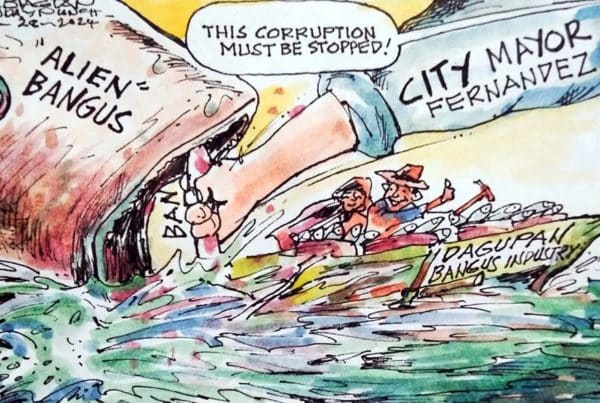Editorial
Getting out of the rot
AS in many growing cities outside the country’s capital, like Baguio and Cebu for example, Dagupan is faced with a distressing garbage disposal crisis. It’s basically the same everywhere: the local government and the people are equally and jointly culpable for this problem: The local governments for lack of urban planning, proper administration, and commitment for a long-term solution, while the people for their disregard of their crucial role in garbage management.
In Dagupan’s case, we see how several communities stubbornly continue to refuse to cooperate in the waste segregation policy, which is specified not just in a local ordinance but in Republic Act 9003, known as the “Ecological Solid Waste Management Act of 2000”. Sorting out trash right at home and in business establishments, the very source of garbage, is one of the foundations for making a waste management system effective.
As people ignore the no segregation, no collection policy, while the government, in turn, takes a firm stand on it, the city ends up with heaps of trash in public areas which are unsightly, stinking, and a major health risk. It’s the entire city that suffers.
People would often give the excuse that why should they bother segregating when the government will anyway dump everything together in one huge pile. That is somehow a valid argument considering that Dagupan does not have a sanitary landfill facility, much less a comprehensive waste disposal strategy wherein segregated materials have proper places to end up in. Still, people need to start taking responsibility and realize that in segregating, they are significantly helping reduce the amount of garbage that needs to be collected. The city’s dumpsite, technically illegal as it is and should have been closed years ago, is already close to its capacity limit. Every bottle that is re-used, every ounce of biodegradable waste that is turned into compost, every tin can that is recycled add up to a valuable environment-friendly stack.
At the same time, the city’s solid waste management program is long overdue. Issues surrounding the failure of the local government to set up the required sanitary landfill facility, among other things, need to be threshed out now.
What of the Awai land? Somebody, some people, have to be made accountable for that blunder which cost the city not just P16 million for the price of the land but also further delay in having a long-term solution to the garbage problem.
Dagupan may not be unique among urbanized cities in having a garbage crisis, but it could prove to be one that is a cut above the rest if it manages to get out of its rot.
But that will all depend on the communities’ willingness to cooperate and more importantly, the local government leaders’ resolve to design and implement a waste management system.
Share your Comments or Reactions
Powered by Facebook Comments











